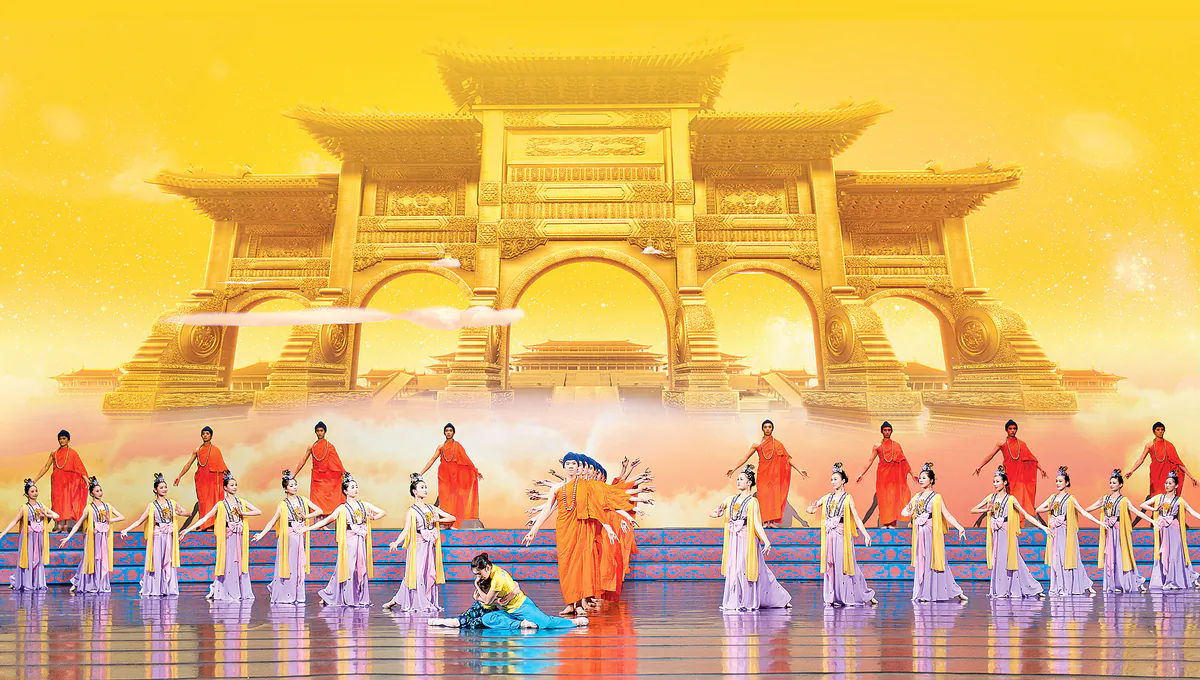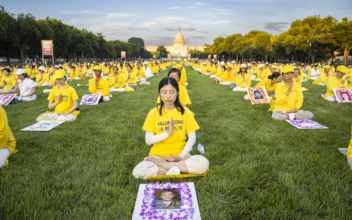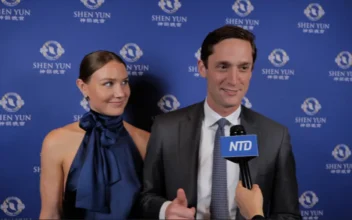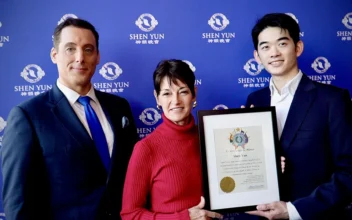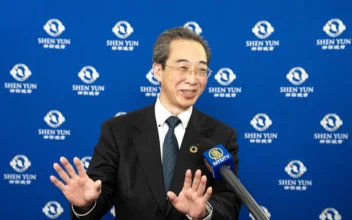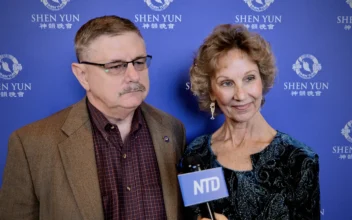In response to a New York Times article published on Dec. 29, Shen Yun Performing Arts issued the following statement on Dec. 30. It is published in full below.
It is true that our company has experienced remarkable success, performing for more than a million people across five continents each year. It is true that audiences the world over have, by the thousands, offered heartfelt praise after they experience our show. It is also true that we have built, on our own, the fastest-growing performing arts company in American history.
What the Times gets completely wrong is why, and, in many regards, how we did it.
This aspect of the reporting is particularly troubling because what drives the people who work for or perform with Shen Yun is, in fact, quite clear—if one is only willing to look. And it’s not complicated.
Our Buddhist-based spiritual practice, Falun Gong, was widely popular in China during the 1990s, receiving awards and praise from even the Chinese government for its health benefits and spiritual teachings. Yet, because the faith became so popular, the Chinese regime felt threatened, and launched a nationwide campaign of suppression and violence. For the last quarter century, millions have been detained, tortured, or killed. Throughout these 25 years, volunteers around the world have selflessly donated their time and resources to projects, organizations, and companies that expose this persecution, give voice to victims’ stories, help save the lives of friends and family back home, and preserve the traditional culture of China, which the communist regime has sought to destroy. Shen Yun plays a key role in this larger effort, and that is what drives us.
Yet, the Times would have its readers believe that none of the above is a motivating factor nor perhaps even real: a bizarre perspective that disregards the terrible human suffering and belittles the deeply held faith of tens of millions across China, throughout America, and around the world.
Indeed, the Times’ caricature of Shen Yun passes over every bit of the real story—one of blood, sweat, and tears of brave men and women fleeing persecution in China, founding Shen Yun, and proceeding to create a new performing arts company in a new land, one that aims to help people reconnect with the very best of their human nature; their own divine inner light.
Like many start-ups, we relied on personal heroics at the beginning, including an all-volunteer team working mostly nights and weekends to build our dream. As our production became more popular and we achieved a certain level of success, we were able to start paying some staff a modest salary. And as we continued to grow, we increased salaries and services for our staff. Yet throughout the process, we remained self-reliant, without ongoing support from government or corporate sponsors, which is largely unheard of in the performing arts world.
None of this story is conveyed or even touched upon by the Times. In fact, their coverage seems to intentionally cherry-pick negative accounts from a few displeased former staff—as well as actions of individuals that were not acting on behalf of nor condoned by Shen Yun—in addition to simply relying on inaccuracies to build a distorted narrative.
The assertion, for example, that Shen Yun is skirting rules pertaining to government grants is very misleading. And the allegation that the Indiana presenter lost money on the 2018 run of shows and then used a government grant a few years later to cover the alleged shortfall is categorically false, a fact that was communicated to the reporters prior to publication.
One of the most egregious smears contained in the Times report, however, is the tragic story of Liang’s mother. Here again, the Times recounts some facts only to mislead the readers as to the truth of the matter. For example, on many occasions, Liang’s mother was urged by Shen Yun colleagues to curb her unnecessary and sometimes lavish spending. Liang’s mother’s failure to care for her health was also the subject of concern from those around her. Finally, after she repeatedly refused care, a Shen Yun staff member finally insisted she be taken to the hospital and took her there themself.
The entire story is heart-rending, and her children have our greatest sympathy, as we understand the severe pain they have endured. That said, Liang’s mother’s actions and decisions were her own, of course, and carried out despite repeated and sometimes heated admonishments from Shen Yun personnel to change her ways. Any attempt to spin her decisions as being the result of Shen Yun “preying on” her are entirely baseless.
In addition, aside from underscoring our success, the Times’ fixation upon our company cash reserves seems misplaced, perhaps stemming partially from an ignorance of what it takes to actually run an organization like Shen Yun. Unlike a vast majority of performing arts companies in the world, we have no corporate sponsors, no regular government support, and no active member donation program. We survive the old-fashioned way: by the value our product brings to consumers (i.e., we survive via bringing quality performances to our audience).
As a nonprofit organization, every dollar we make is put back into the company to further our mission or used to run our operations, which is a sizable responsibility given the all-inclusive approach we offer our people. Many staff are offered free room and board, and we provide a range of free amenities to enrich the daily lives of everyone on campus. We also help fund the Fei Tian schools that share our campus, which provide full scholarships for all students which include room and board and are valued at about $50,000 a year.
Furthermore, we are taking measures to ensure a high level of financial preparedness in the event of another COVID-like disaster or other severe emergency. In fact, we were able to keep all of our people through the COVID-19 pandemic, even while not performing for a year and a half, and have every intention of being able to do that again if needed in the future.
The overarching narrative of the Times article is deeply concerning and offensive: it belittles our faith and our community, distorts the intentions and actions of kindhearted people over the course of decades, pays no attention to the artistic achievements and contributions of Shen Yun, and attributes all of our efforts to only one thing, a drive for profit. This depiction could not be more inaccurate.
It is also disturbing to see that some of the themes in the article mirror, with shocking similarity, the CCP’s propaganda against Shen Yun and Falun Gong. Twenty-five years ago, such narratives were formulated by Beijing to strip us of our freedoms, dehumanize and silence us, and turn people against us in order to facilitate a nationwide campaign of violence and killing. The reemergence of these exact same themes on the pages of the Times should foster grave concern within the Times organization, and certainly among its readers.
Additional Resources:
10 surprising things to know about recent reports on Shen Yun:
https://faluninfo.net/10-things-to-know-about-the-new-york-times-investigation-of-shen-yun-falun-gong/
Artist Cited in NY Times Attack Articles Sets Record Straight:
https://www.ntd.com/artist-cited-in-new-york-times-attack-articles-on-shen-yun-sets-record-straight_1036469.html
Report on CCP’s new media campaign against Shen Yun:
https://faluninfo.net/weaponizing-social-media/
Interview about the CCP weaponizing American media:
https://www.youtube.com/watch?v=oS3RS4vJguI
Newsweek article by former Shen Yun dancer:
https://www.newsweek.com/i-was-former-shen-yun-dancer-proud-part-it-1946031
Interview with former Shen Yun dancer:
https://www.youtube.com/watch?v=NWHDr8wc0Uw
Shen Yun factsheet:
https://www.shenyunperformingarts.org/shen-yun-factsheet
